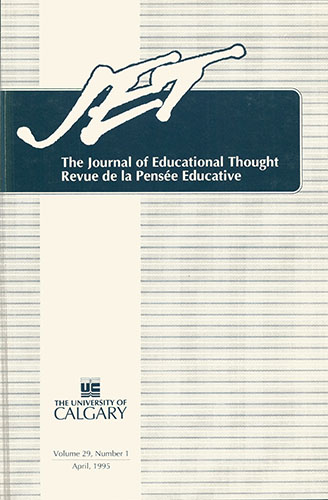Objectivity, Subjectivity, and Relativism: The Case for Qualitative Methodologies in Educational Research
DOI:
https://doi.org/10.55016/ojs/jet.v29i1.52378Abstract
In recent decades, the innovative approaches of qualitative modes of inquiry advocating the use of naturalistic and/or critical ethnographic techniques for the narratologically driven study of phenomena in pedagogical contexts have succeeded in beckoning for a reexamination of traditional views of research methodologies based upon the foundationalism of empiricist science within the dominant paradigm of quantitative forms of analysis. Reframing the discourse of the debate around the key issue of objectivity, and by implication subjectivity and relativism also, this essay addresses epistemological questions about the nature of ontology, theoretical questions concerning the knowledge of sense perception(s), and methodological questions regarding the scientific truth-effect of procedure(s) integral to arguments for and against the use of qualitative forms of analysis as a viable and effective means for conducting educational research.
Downloads
Published
Issue
Section
License
The Journal of Educational Thought retains first publication rights for all articles. The Journal grants reproduction rights for noncommercial educational purposes with the provision that full acknowledgement of the work’s source be noted on each copy. The Journal will redirect to the appropriate authors any inquiries for further commercial publication of individual articles. All authors wishing to publish in JET will be asked to fill in and sign a Consent to Publish and Transfer of Copyright agreement.
Authors must affirm that any submission to JET has not been and will not be published or submitted elsewhere while under considration by JET.

